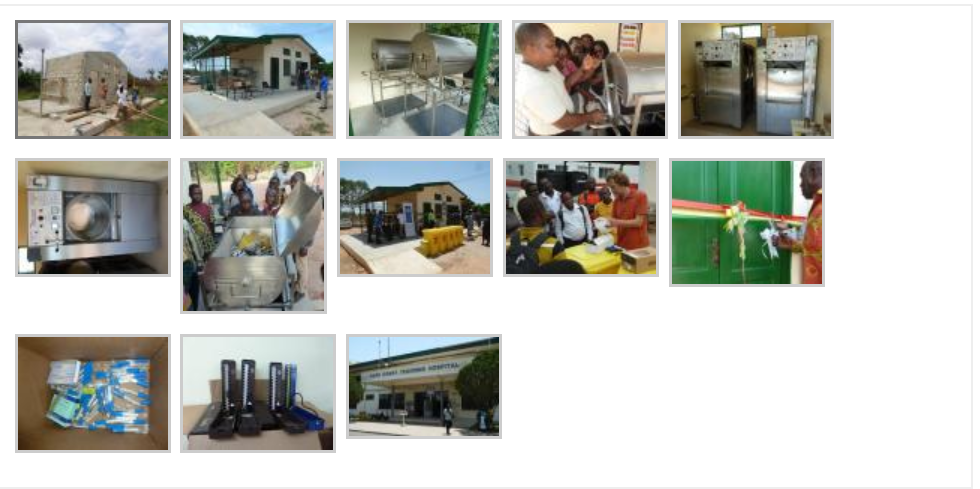Health care facilities in Ghana have installed autoclaves and other equipment to improve health care waste management, as part of a Medical Waste project that is being coordinated by United Nations Development Program (UNDP), the World Health Organization and Health Care Without Harm (HCWH).
During a 6-day visit to Ghana (22-27 April 2018), Ruth Stringer, HCWH’s Science and Policy Coordinator, and a group of UNDP experts visited the hospitals, worked with the autoclave manufacturing team to install the equipment and trained the staff that will be operating the machines. Stringer explained that "this is a very exciting phase of the project. We have trained over thirty technical staff and installed the first autoclaves in the sites constructed by the hospitals. Now safer waste management will start, first here in Ghana, and soon in the other project countries."
The support provided to the facilities is expected to directly benefit more than 1,770,221 people living in different parts of Ghana, such as Cape Coast, Koforidua, Kumasi, Keta and Winneba, as well as many other indirect beneficiaries living around these communities and the entire country.
The beneficiary hospitals were the Cape Coast Teaching Hospital, the Koforidua Regional Hospital, and the Tegbi Health Centre, Keta. Two other hospitals, Komfo Anokye Teaching Hospital and Winneba Trauma Hospital, which are already using waste treatment technologies, received assorted personal protective equipment and waste bins. Through the participation of the hospitals in the project, they all become GGHH members. Ruth Stringer presented several of them their official membership certificate during her visit.
The Medical Waste Project
The Medical Waste project –Reducing UPOPs and Mercury Releases from the Health Sector in Africa- will run from 2016 until 2020 with funding from the Global Environment Facility (GEF). It aims to disseminate non-incineration waste treatment and substitute mercury containing medical devices in four African countries: Ghana, Madagascar, Tanzania and Zambia. Its goal is to improve health care waste management, reduce the release of toxic substances into the environment and to help the countries to comply with the Stockholm Convention, which aims to reduce the release of persistent organic pollutants (POPs).
Earlier this year, these 5 participating facilities received 400 mercury-free thermometers and sphygmomanometers as part of efforts to phase-out mercury use in the health sector, under the Minamata Convention. The project has also trained around 30 personnel from the beneficiary facilities on the operation and maintenance of the equipment.
As for next steps, Stringer detailed that autoclaves in hospitals in Tanzania, Zambia and Madagascar will be installed between May and June of this year. The second phase of the project will focus on monitoring and supporting the health care facilities to manage their waste with the new systems, providing a second round of equipment to the current project hospital and several other faciltieis and working to ensure that the waste management systems installed through the project are sustained in the long term and replicated.
This project includes the Sustainable Development Goal number 12: Ensure sustainable consumption and production patterns. SDG 12 includes targets on reducing pollution and health impacts through environmentally sound management (ESM) of all waste throughout the product life cycle; promoting waste prevention, reduction, and recycling and reuse.
For more information on the project, click here.
